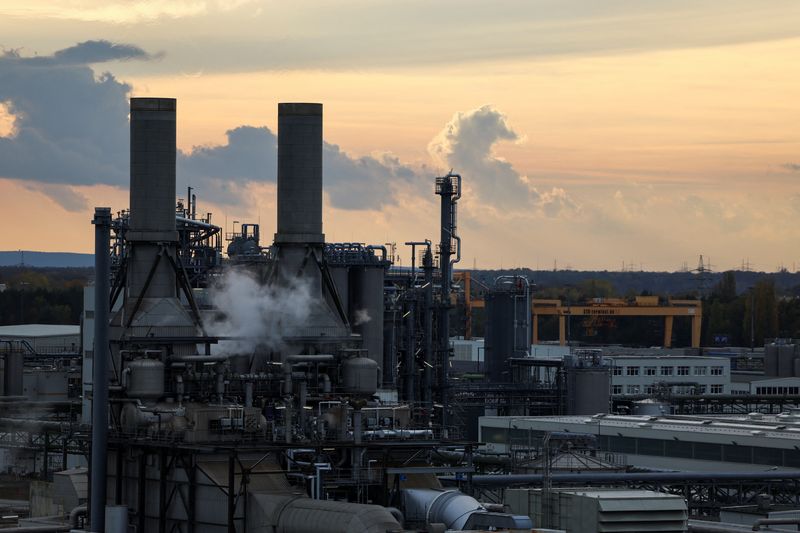By Patricia Weiss and Miranda Murray
BERLIN (Reuters) -Germany's BASF began the year with a drop in sales and adjusted earnings, giving the chemical maker's new CEO plenty to tackle as he takes the reins on Thursday of a firm plagued by industry-wide weak demand and high production costs.
Outgoing CEO Martin Brudermueller will answer questions for the last time in front of around 5,000 shareholders before Markus Kamieth, the group's former head of Asia, takes over.
Brudermueller, who confirmed the company's full-year earnings target, has expressed hope the worst is behind it.
BASF shares were up 1.1% in early Frankfurt trade.
Order volume has been recovering slowly, Brudermueller told analysts on a call, but said it was too early to speak of a fundamental turnaround.
"For this, we will need to see the current positive trend continuing in the coming quarters," he said.
Brudermueller also stuck by his decisions to trim costs to maintain competitiveness, saying it provided a good basis for Kamieth's team.
A year ago, BASF laid out plans to close sites, cut costs and shed about 2,600 jobs in Europe, mainly affecting its headquarters in Ludwigshafen, Germany.
It said in February it would slash another 1 billion euros ($1.1 billion) in annual costs at Ludwigshafen.
First-quarter earnings before interest, taxes, depreciation and amortisation (EBITDA), adjusted for one-off items, fell 5.3% to 2.7 billion euros ($2.9 billion), hit in part by higher bonus provisions and declines in the agrochemicals, surface treatment and catalyst businesses.
However, that was above analysts' average estimate of 2.57 billion, according to a consensus on the company's website.
Sales fell about 12% to 17.6 billion euros in the first quarter, as BASF felt the effect of lower prices in almost all segments, missing analysts' forecast of 18.6 billion euros.

BASF is in the midst of a major structural overhaul, making businesses such as battery chemicals and agricultural pesticides more independent.
The company has agreed to the sale of its energy business and it continues to invest in China despite political tensions with the West, as growth in its European home market falls behind other regions.
($1 = 0.9340 euros)